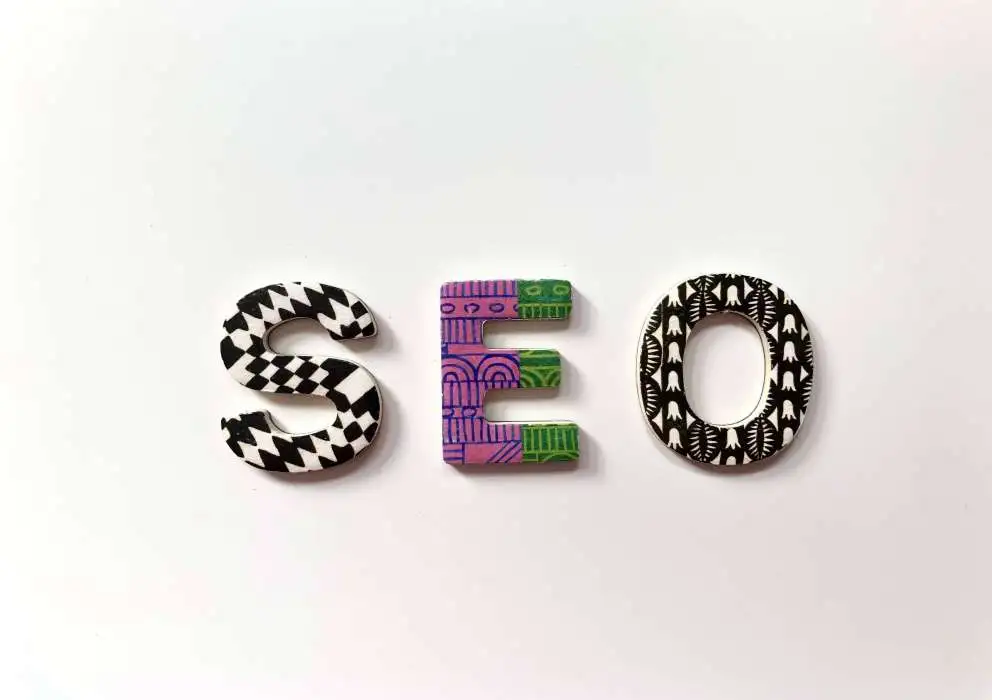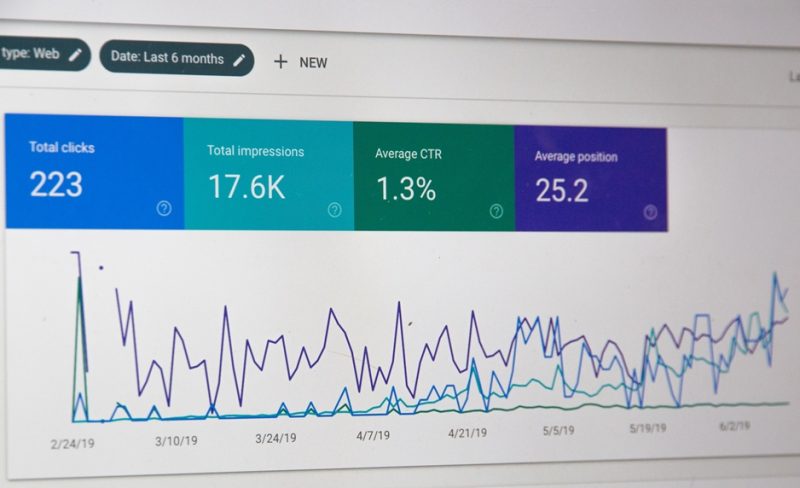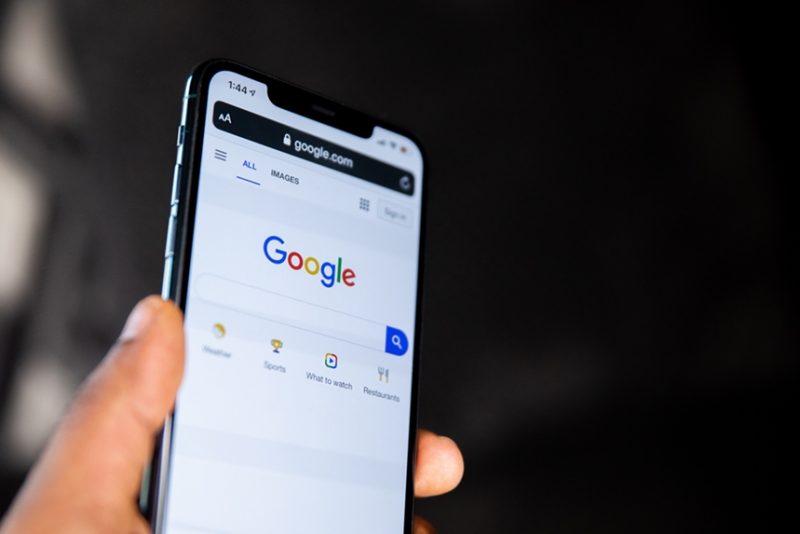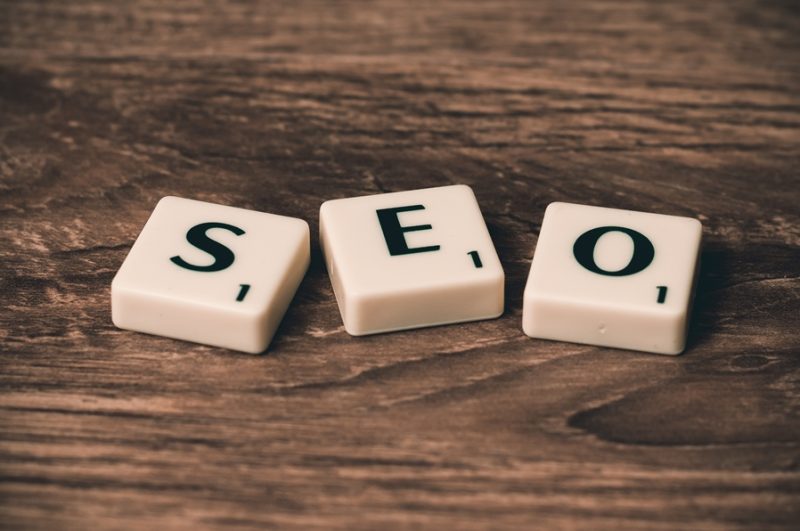SEO dictionary - everything you need to know

SEO is an extremely important process for your website to enjoy visibility on Google. This process involves a series of practices and techniques, which if followed can bring you new customers, for free. And in order to understand more easily what this whole process involves, we have created a small dictionary of SEO words for you.
A to C SEO Dictionary
Accelerated Mobile Pages (AMP) - AMP is a web platform built specifically to provide speed to web pages on mobile devices. The advantage of a page that loads faster than 3 seconds is that your visitors will spend more time on your website, implicitly the possibility of using your services or products becoming greater.
Algorithm - Search engine algorithms (eg: Google) use a complex formula, after which they show a user results that involve the most relevant content (based on the keywords they searched for). Creating the highest quality content leads to the positioning of your site among the first results on Google, which is extremely important to have more visibility in front of potential customers.
Alt IMG Tag - Alternative text that is associated with an image uploaded to the site. Such an attribute is used to provide non-visual browsers with a description of these images.
Anchor Text - Words that contain a link, and with a click the user will be redirected to another page within the visited site or to a new site.
Authority (or Domain Authority) - This is very important because authority is a score of your site received from search engine altgorithms. This score is given based on backlinks or E-A-T ratings and will decide the position of your web pages on search engines like Google.
Backlink - Also called "inbound links" or "external links". Represents links on your website that redirect users to another website. For Google, such backlinks represent ranking signals, because they refer to an authority. In addition, using as many links as possible (both the number and quality of them matter) means more trust that your site will receive from search engines like Google.
Black Hat SEO - SEO optimization technique performed against the rules imposed by search engine algorithms. It involves stringing together lots of keywords, buying links or a disguise of the real content and aims to get good positions on Google or other search engines. However, search engines heavily penalize these sites once they are discovered.

Broken link - "Interrupted link"; appears when we click on a link that leads us to a page that contains the message "404 error not found".
Branded / Non-branded Searches - Branded searches are those searches by a user that also involve your brand name in addition to keywords. For example "Prologue SEO Services". Non-branded searches involve keywords, but in the absence of your brand name.
Caching - UX (User Experience) tool. It is particularly important because it copies a website into a static version on a server, thereby increasing its loading speed, especially on mobile devices.
Core Web Vitals - Also called "field data" on Google. Represents key performance indicators of some web pages: LCP (Largest Contentful Paint), FID (First Input Delay), CLS (Cumulative Layout Shift).
Crawling - The process of crawling websites by search engines like Google to determine if they are trustworthy. Crawling is also called analyzing the content of a website with the help of SEO tools (eg: Ahrefs, Moz, Semrush) when you want to perform a check or see the ratio between your website and that of the competition .
CTR - Acronym for "Click-through rate" (Click rate); Performance indicator that indicates the rate of user hits of a web page in Google results. The calculation is made by dividing the number of clicks registered on a page by the total number, then the result is multiplied by 100.

SEO Dictionary from E to L
E-A-T - Acronym for "Expertise, Authority, Trust." It is a factor that influences the quality score of your website's web pages.
User Experience - "Customer Experience" (CX) or "User Experience" (UX); Represents a visitor's experience on your website in terms of the loading speed of web pages or the content you offer them.
Featured snippets - Clear information, generally in text form, that is provided to a user directly on the Google results page without the need to visit a site.
FID (First Input Delay) - Performance indicator of the time in milliseconds, calculated from the moment a user clicks to view a web page, until the moment that page opens.
Google BERT - Acronym for "Bidirectional Encoding Representations from Transformers"; is a tool used by artificial intelligence to translate texts in such a way that Google's algorithms understand the content of a web page.
GSC - Acronym for Google Search Console; is an online tool that collects online user searches and analyzes the performance of a website based on them.
XML sitemap (XML sitemap) - tool with which the value of a site is influenced. This represents the map of a site, more precisely, its structure, involving sections and links. The sitemap not only helps your visitors with navigation, but it also helps you with your site's position on search engines.
Indexing - Action by which search engines capture and store information about your site, such as its structure, content or backlinks.

Webmaster Tools - Tool that gives you the ability to see how your site is indexed by a search engine.
Keywords - Keywords relevant to your site that are of major importance when it comes to SEO. A user will enter these keywords into search engines, and if your site is optimized correctly, you will enjoy visibility on the first pages.
LCP - Acronym for "Largest Contentful Paint"; metric that measures the time (in seconds) it takes a browser to load the largest element present on a web page. This element can be an image, video or text. A good LCP implies a load of less than 2.5 seconds, one requiring improvement implies 4 seconds, and a poor LCP is one over 4 seconds.
M to W SEO Dictionary
Affiliate Marketing - process whereby an affiliate site (the affiliate is a retailer) markets the products of another company, earning a commission for each product sold.
Meta Description - "Meta Description"; That text that appears under the title of a web page displayed on search engines. It should be short and concise, relative to the content a user will find when accessing that page. To perform well on search engines, a meta description must include the keywords that were used to optimize that web page.

Query - "Query"; represents the words entered on a search engine. Basically, they are questions related to a certain topic that users are looking for answers to. For example, in 2020 people searched for different information related to the Coronavirus.
Google Pay-Per-Click Ads - Paid ads that deliver information about a brand to targeted consumers. Payment is made on each individual click.
Rich Results - General term, involving visual representations of search engine results (Meta Description); also embeds Rich Snippets.
Rich Snippets - Attractive elements that accompany the meta description on Google results. These can be images, product ratings or other relevant information.
SEM - Acronym for "Search Engine Marketing". It involves activities used to generate income online through the use of search engines.
SEO (Search Engine Optimization) - Acronym for "Search Engine Optimization" (in translation Search Engine Optimization); Set of techniques by which the optimization of some pages of a website is pursued, with the aim of obtaining organic (free) traffic on search engines.

SERP - Acronym for "Search Engine Results Page"; It represents the results page that appears to a user after performing a keyword search on Google.
Spider/Web Crawler - Programs used by search engines. They aim to perform an automatic and continuous search, analyzing the content of web pages in detail.
Structured Data - Since it is important for Google's algorithms that users receive information quickly and efficiently, there is a set of rules that must be followed in order for your site to have visibility. Thus, Structured Data represents all the processes and tools that you need to use in such a way that Google considers that the web pages of your website contain relevant information for users.
Tags - In translation "Tags"; are elements that may or may not be visible that give search engines information about what your web page contains. These Tags are essential in the SEO optimization process. They can be of three types: Title tag, Alt Tag, Meta robots tags.
White hat SEO - The process of SEO optimization being done in a way that content is structured data compliant but not rigid with user experience in mind. Thus, it involves quality content with an easy-to-follow structure.
And your website can enjoy everything that SEO optimization can offer. We can help you rank among the first positions on Google, all you have to do is contact us by phone at 031 428 48 85 or by email at office@prologue.ro. And what's more, together we will strengthen the success of your brand with the help of SEO techniques.
Citeşte şi:
How to save your business during the pandemic with an online store



